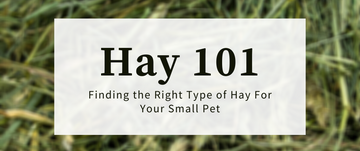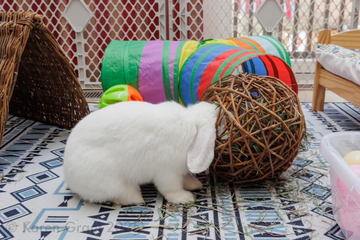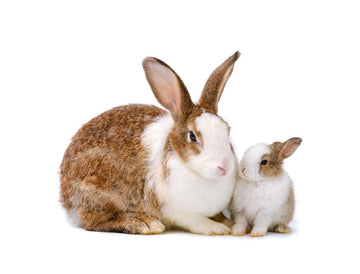Rabbit Grinding Teeth: What It Means
If you've ever heard your rabbit making a strange grinding or chattering sound with their teeth, it can catch you off guard. At first, it might sound cute—or maybe even a little alarming. But understanding what's behind this noise is a big deal for any rabbit owner.
Click Here For a Guide to Understanding Your Rabbits Diet.

Rabbits can't speak, but they’re always communicating. One way they do this is through their body language and subtle sounds, like tooth grinding! Depending on the volume, speed, and the rest of your rabbit’s behavior, that sound can mean very different things. It can be a sign of pure contentment—or a red flag that something is seriously wrong.
Let’s break down what’s really happening when you notice your rabbit grinding teeth, and how to tell if it’s a good or bad thing.
What Is Rabbit Tooth Grinding?
Rabbits have strong jaw muscles and teeth that never stop growing. So it’s no surprise that you might hear them using their teeth often. But not all tooth sounds are created equal. There's a difference between gentle tooth purring and painful grinding.
Gentle grinding is often soft, and rhythmic, and happens when your rabbit is calm. Think of it like a cat purring. But loud, harsh grinding? That usually means discomfort—or worse, pain. The tricky part is learning to tell the difference.
Understanding this behavior starts with knowing your rabbit’s normal habits. When in doubt, context is everything.
Rabbit Grinding Teeth: What It Means
There are two main categories of rabbit grinding teeth: contentment and distress. Let’s dig into both.
1. Grinding That Means Happiness
If your rabbit is lying down, eyes half-closed, maybe even enjoying a good petting session, and you hear a soft grinding noise, you have one happy bunny! This sound is sometimes called "tooth purring" or "tooth clicking." It's quiet, almost like a soft crackling sound.
You might also see other signs of comfort at the same time:
-
Relaxed body posture
-
Ears resting naturally or drooping
-
Stretched out or flopped on their side
Some rabbits even make this sound while they’re dozing off. In this context, rabbit grinding teeth is a compliment. It means you're doing something right!

2. Grinding That Means Pain
On the flip side, loud or intense tooth grinding is often a cry for help. It's usually slower, more deliberate, and much more noticeable. Rabbits in pain may hunch their backs, hide, or act unusually withdrawn.
If your rabbit is acting off and the tooth grinding is more pronounced, don't wait. It's time to call your vet. Rabbits are prey animals and they will hide their pain until it's nearly unbearable. By the time they're showing signs, it's already serious.
Why Do Rabbits Grind Their Teeth When They're in Pain?
Tooth grinding in pain comes from stress in the nervous system. The sensation may be involuntary, like groaning or clenching your jaw when you're hurting. The pressure or movement could offer a temporary distraction from the discomfort.
This kind of grinding might also be your rabbit’s way of signaling that something’s wrong. Just like thumping their foot when scared or alerting others to danger, grinding loudly might be an instinctive cry for help.
According to the House Rabbit Society, understanding these subtle signs is crucial. A rabbit grinding its teeth out of pain can decline quickly without intervention.

Common Health Issues Behind Painful Grinding
If your rabbit’s tooth grinding isn’t the gentle kind, it's time to look closer. Painful grinding often points to an underlying medical issue. Some of the most common include:
1. GI Stasis
GI stasis happens when your rabbit’s digestive system slows down or stops. It’s extremely dangerous and needs immediate care. Alongside tooth grinding, watch for signs like small or no droppings, no interest in food, and lethargy.
2. Dental Problems
A rabbit’s teeth grow continuously, up to 5 inches per year. If they don’t wear down evenly, sharp points can form. These “spurs” dig into the cheeks or tongue, causing pain every time they chew.
Your vet may need to file down the teeth or even extract problematic ones. Regular hay consumption, like Timothy Hay, can help prevent this.
3. Urinary Tract Issues or Bladder Sludge
Rabbits can also grind their teeth due to internal discomfort, especially around the kidneys or bladder. Sludgy urine, straining to pee, or frequent litter box trips may all point to this issue.
Look for cloudy or chalky urine and check their underside for urine scald. This is another case where quick vet care can make a big difference.
4. Arthritis or Mobility Pain
Older rabbits are prone to joint pain. They may hide it well, but the signs are there, less hopping, slow movement, and yes, tooth grinding.
According to RSPCA guidelines, gentle exercise and vet-approved pain relief can help improve their comfort and reduce this behavior.
How to Tell the Difference
It all comes down to the context. Happy grinding is soft and happens during calm moments. Pain grinding is louder and happens when something’s not right.
Still not sure which one you’re hearing? Try recording the sound and showing it to your vet. They’ll recognize it right away!

How to Prevent Painful Tooth Grinding in Rabbits
Preventing painful tooth grinding starts with one key goal: keeping your rabbit healthy, comfortable, and stress-free. Since most painful grinding comes from dental issues or internal discomfort, there are a few simple habits that go a long way.
First and foremost, your rabbit’s diet plays a huge role. Rabbits need unlimited access to high-fiber hay like Timothy Hay. Chewing hay all day helps naturally file their teeth down and keeps the jaw aligned. Pellets and treats are fine in moderation, but hay should always be the main course.
Here are a few more ways to help reduce the risk of health problems that cause painful grinding:
-
Provide chew toys: Wooden toys, apple sticks, or safe chew blocks help wear down teeth and relieve boredom.
-
Schedule regular vet checkups: A rabbit-savvy vet can catch early signs of dental disease or other hidden issues before they become serious.
-
Limit stress: Loud noises, rough handling, or sudden changes can lead to digestive trouble. Keep their environment calm and predictable.
-
Encourage movement: A rabbit that gets plenty of exercise will have better digestion and joint health. This is especially important for older bunnies.
Some rabbits are more prone to dental issues due to genetics or past trauma. In those cases, prevention also means staying alert. Keep an eye on their eating habits, droppings, and energy levels. The earlier you catch a problem, the easier it is to fix.
Understanding Your Rabbit’s Tooth Talk
Learning the difference between comforting tooth purrs and painful grinding is a game-changer for rabbit owners. It can help you catch health issues early, prevent long-term discomfort, and build a stronger bond with your bunny.
When it comes to rabbit grinding teeth, context is everything. If you’re ever unsure, trust your gut and talk to a rabbit-savvy vet. Your rabbit might not be able to speak, but they’re always telling you something—you just have to know how to listen.

Hay 101: Finding Right Hay for Small Pets

Rabbit Cage Ideas That Go Beyond the Standard Cage







